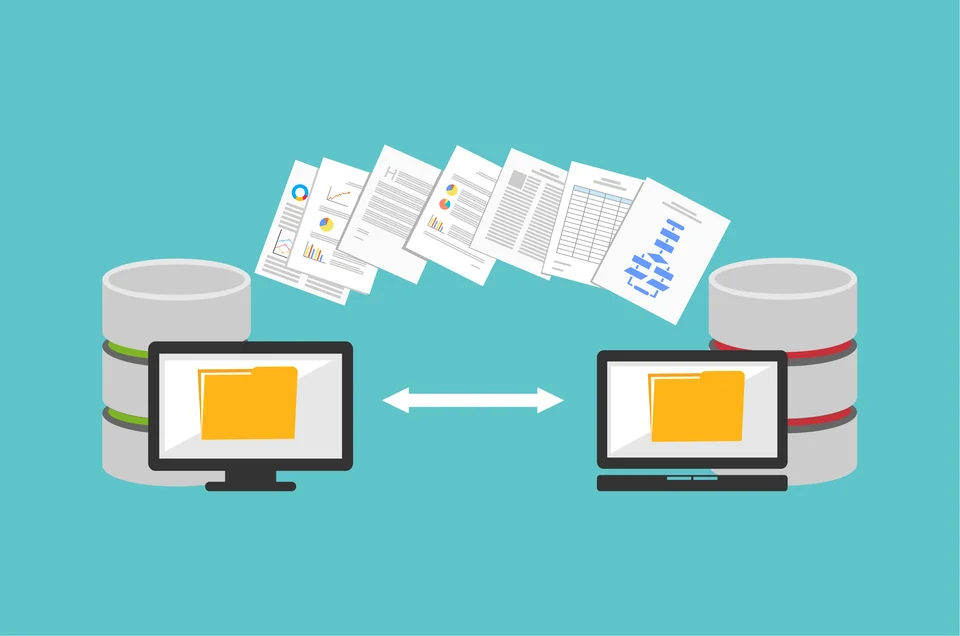A server should have backup and recovery capabilities, allowing administrators to back up critical data and recover it in the event of a system failure or data loss. This ensures that important data is protected and can be restored quickly in case of a disaster.
What solution do we have?
In a small business working environment, there are several backup and recovery solutions available, including Disk-based backup, RAID, ZFS, and Cloud backup. Each of these solutions has its own advantages and disadvantages, and the best solution for your business will depend on your specific needs and budget.
Disk-based backup involves backing up data to disk-based storage, such as a hard drive or network-attached storage (NAS) device. This solution is often faster than tape-based backup and allows for more frequent backups. Disk-based backup is a good choice for small businesses that need to back up their data regularly and quickly, but do not require offsite backup or disaster recovery capabilities.
RAID is a technology that allows multiple hard drives to be combined into a single logical unit, providing improved performance and data redundancy. RAID can help protect against data loss due to hardware failure, but it does not provide offsite backup or disaster recovery capabilities. RAID is a good choice for small businesses that need improved performance and data redundancy for on-premises data storage.
ZFS is a file system that includes advanced data management features such as data compression, snapshots, and data deduplication. ZFS can provide improved data integrity and performance, as well as advanced backup and recovery capabilities. ZFS includes built-in RAID functionality, allowing multiple hard drives to be combined into a single logical unit with data redundancy. ZFS is a good choice for small businesses that need advanced data management features and improved data integrity and performance.
Cloud backup involves backing up data to a cloud-based storage service, such as Amazon S3 or Microsoft Azure. Cloud backup offers the advantages of offsite storage and easy scalability. Cloud backup is a good choice for small businesses that need offsite backup and disaster recovery capabilities, or that need to store large amounts of data that can be accessed from anywhere.
In summary, Disk-based backup is a good choice for small businesses that need to back up their data regularly and quickly, but do not require offsite backup or disaster recovery capabilities. RAID is a good choice for small businesses that need improved performance and data redundancy for on-premises data storage. ZFS is a good choice for small businesses that need advanced data management features and improved data integrity and performance. Cloud backup is a good choice for small businesses that need offsite backup and disaster recovery capabilities, or that need to store large amounts of data that can be accessed from anywhere.
Why not use ZFS and Cloud at the same time?
Using ZFS and Cloud backup together can provide a comprehensive backup and recovery solution for small businesses. ZFS can provide advanced data management features and improved data integrity and performance, while cloud backup can provide offsite backup and disaster recovery capabilities.
By using ZFS to store data on-premises and backing up that data to the cloud, small businesses can benefit from both the performance and data management features of ZFS and the offsite backup and disaster recovery capabilities of cloud backup. This can help protect against data loss due to hardware failure, natural disasters, or other unexpected events.
In addition, using ZFS and cloud backup together can provide a scalable solution that can grow your business. As your data storage needs increase, you can easily add more disks to your ZFS pool or increase your cloud storage capacity.
However, it’s important to keep in mind that using ZFS and cloud backup together can be more expensive than using a single backup solution. In addition, it may require more technical expertise to set up and maintain both solutions. As with any backup and recovery solution, it’s important to carefully evaluate your needs and budget to determine the best solution for your business.
What’s the best solution?
so Why not ZFS with daily snapshots and cloud backup of the most important data?
Using ZFS with daily snapshots and cloud backup for the most important data can be an effective backup and recovery strategy for small businesses. ZFS snapshots can provide a point-in-time copy of your data, allowing you to easily restore data to a previous state if needed. Cloud backup can provide offsite backup and disaster recovery capabilities for your most important data.
By using ZFS snapshots, you can create a backup of your data on-premises without the need for additional hardware or software. This can help protect against data loss due to human error, software bugs, or other issues that may affect your data. You can schedule ZFS snapshots to occur automatically on a daily basis, providing a consistent backup of your data.
For the most important data, you can use cloud backup to provide an additional layer of protection. Cloud backup can help protect against data loss due to hardware failure, natural disasters, or other unexpected events. By backing up your most important data to the cloud, you can ensure that you have a copy of your data that is stored offsite and can be easily restored in the event of a disaster.
However, it’s important to keep in mind that using ZFS snapshots and cloud backup together may not be suitable for all types of data. Some data may require more frequent backups or more advanced backup and recovery capabilities. It’s important to carefully evaluate your data storage needs and budget to determine the best backup and recovery solution for your business.

